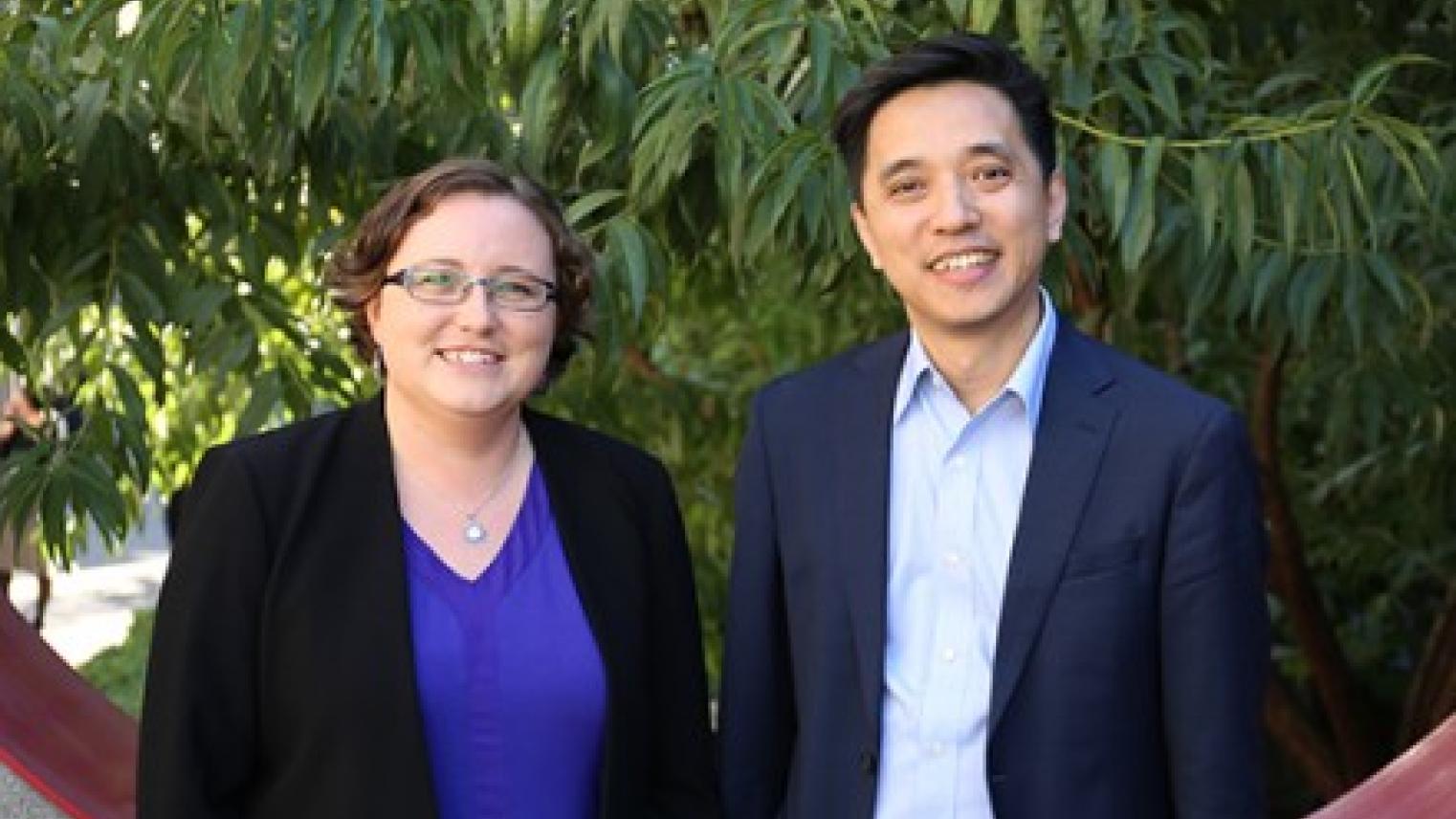ANU illiberalism conference attracts Southeast Asian academics to return to Canberra

Top graduates from The Australian National University (ANU) have returned to campus to discuss the state of liberal democracy in Thailand, Cambodia and Myanmar at the ‘Entrenched illiberalism in mainland Southeast Asia’ conference on 8 and 9 April.
Dr Prajak Kongkirati and Dr Kimly Ngoun both completed their doctorates at the Department of Political and Social Change at ANU College of Asia and the Pacific’s Coral Bell School of Asia Pacific Affairs.
Both graduates said they were happy to return to Canberra, where they spent all four years of their PhD programs.
“I’m excited to be back at ANU – I love the campus and it’s nice to come back and see many old friends and old professors,” said Dr Kongkirati.
“I feel excited because I always consider Canberra as my second home,” said Dr Ngoun.
Dr Rebecca Gidley, Research Fellow at ANU Department of Political and Social Change and one of the conference conveners, said having some of the region’s leading experts together in the same room was vital to generating high-quality discussion.
“What’s been most valuable about putting on this conference is being able to draw on the ANU expertise that we’ve got in-house, but also to bring in a lot of expertise from civil society and academics from the region,” she said.
“We do a lot of field-based research at ANU and spend as much time in-country as possible to understand the region, but being able to bring in people who have those lived experiences is always going to bring more to the conversation.”
Having completed his PhD at ANU in 2013, Dr Kongkirati is Associate Dean (Research and Academic Services) at Bangkok’s Thammasat University and researches Thai politics, conflict and violence.
In recent years, there have been significant setbacks to democratic development globally, according to Dr Kongkirati.
“We could say there has been a crisis of democracy happening around the world – and these three countries are no exception,” he said.
“You are seeing a large number of middle-class people in Thailand, Cambodia and Myanmar supporting authoritarian values, not caring much about human rights or civil liberties. This is a worrying trend in the region.”
Dr Ngoun completed his PhD in political science at ANU in 2017 and is now a lecturer at the Royal University of Phnom Penh. He said illiberalism has been a driver of conflict in the region.
“For example in Myanmar, on the issue of the Rohingya, religion has been used as a political movement to marginalise, to discriminate against ethnic Rohingya.”
Myat Thet Thitsar is the CEO and co-founder of the Enlightened Myanmar Research Foundation. This Yangon-based organisation works to development of evidence-based policymaking and revitalisation of independent research culture in Myanmar.
“The surge of illiberalism is a problem dividing humanity, leading to conflict,” she said.
“Even though we still don’t have all-out war, these are not good signs.”
The ‘Entrenched illiberalism in mainland Southeast Asia’ conference was hosted by the Department of Political and Social Change at ANU College of Asia and the Pacific’s Coral Bell School of Asia Pacific Affairs. For more perspectives and analysis on Southeast Asia visit New Mandala, which is based at ANU College of Asia and the Pacific.